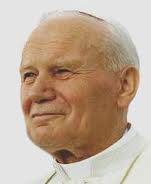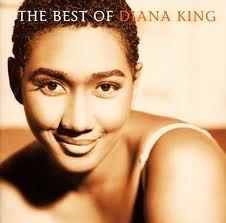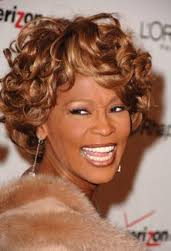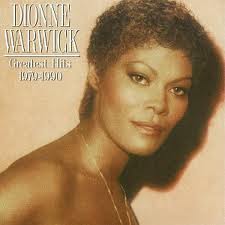Can you tell the truth about someone without defaming them?
It was 1977, about or just before Easter when I first met John. We were both travelling by Greyhound across the northern part of the United States, I from New York to Everett in Washington State where I was to meet my cousin Phil, who was working on a farm exchange scheme in a town called Mt Vernon, and John I presume from New York, although we never discussed it, to Olympia, which is south of Seattle, where he was a student at Evergreen State College.
Earlier the previous year I had arrived in London, and had worked first in a wine bar on Wigmore Street, and later as a cleaner in the YMCA. It hadn't taken me long to save the airfare, and I planned to be away for about six weeks. That is what I told my girlfrienf Brigitte, who was French, and living in Paris with her parents. She and I were in love, I think you can say, and we had met in the hotel where I was staying, while we were watching television. She was standing about three feet away from me, and there was quite a crowd watching something I don't remember what on television, maybe Hawaii Five O, which was very popular. For some reason I found myself putting out my left hand and I found hers meeting mine. We had both put out our hands at teh same time, without looking or talking. It was like a scene from Romeo and Juliet really, but I don't have any strong memories of the next day or two. Christmas Eve she agreed to go out to dinner with me, and everything was closed except a Chinese Restaurant in Bayswater, which suited me just fine. It could have been the next day but I am sure she will remember the exact dates.
So, leaving Brigitte in a Paris railway station, which is a really terrible way to leave someone you love, I travelled by train through Switzerland to Berne, where I tried unsuccessfully to contact another girl who I had met in London earlier, then to Frankfert where I caught a charter flight I had booked through an Indian travel agent, a stop in Shannon in Ireland to refuel, and on to New York. Then a bus to Lancing in Michigan where a friend I had met on the bus stayed, a few more days and on to Chicago.
Phil was waiting for me at the bus station at Mt Vernon with a blue firebird. We headed south, by bus after a few days, to catch up with some other farm friends of his in a little town just out of Olympia.. We hired a car at some point, and met up with John at Evergreen who had offered "24 hour pick-up and delivery" if I ever found my way to Olympia. The plan was to pick fruit for a few weeks, and head back to London together, but Phil had pressure from his parents to return to New Zealand and work on the farm. We hitched down to L.A. where the ticket was for, and were heading north again, and were as far as San Francisco, when Phil dropped a bombshell on me. He was going back to LA to go to New Zealand. He gave me $100, which was about all the money I had, and last I saw of him he was sitting in teh back of a ute, with soome people we met in a reataurant. He made it safely back to New Zealand I found out eventually, and I headed back to Evergreen.
After all I ended up staying at Evegreen for over a year. After I had been at Evergreen for a while I learned that Brigitte had been writing me love letters so I had to go and pick them up. They were the most beautiful love letter I have ever read, and only occasionally did they condem me for being unsensitive or unfeeling and accuse me of finding someone else. They were heartfelt and passionate and loving, but after keeping them for some time I finally burned them so that some pig wouldn't get hold of them and have a pervy read through them.
Defamation—also called calumny, vilification, traducement, slander (for transitory statements), and libel (for written, broadcast, or otherwise published words)—is the communication of a statement that makes a claim, expressly stated or implied to be factual, that may give an individual, business, product, group, government, or nation a negative image. It is usually a requirement that this claim be false and that the publication is communicated to someone other than the person defamed (the claimant).[1]
In common law jurisdictions, slander refers to a malicious, false,[2][not specific enough to verify] and defamatory spoken statement or report, while libel refers to any other form of communication such as written words or images.[3] Most jurisdictions allow legal actions, civil and/or criminal, to deter various kinds of defamation and retaliate against groundless criticism. Related to defamation is public disclosure of private facts, which arises where one person reveals information that is not of public concern, and the release of which would offend a reasonable person. "Unlike [with] libel, truth is not a defense for invasion of privacy."[4][not verified in body]
Cases involving libel
An early example of libel would be the case of John Peter Zenger. Zenger was hired to publish New York Weekly Journal. When he printed another man’s article that criticized William Cosby, the governor of New York at the time, Zenger was accused of seditious libel.[15] The verdict in the 1735 case was returned as "not guilty" on the charge of seditious libel, having proved that all the statements Zenger had published about Cosby had been true, so there was not an issue of defamation. Another example of libel would be the case of New York Times Co. v. Sullivan (1964) which involved a newspaper publication. The Supreme Court overruled a state court in Alabama that had found the New York Times guilty of libel for printing an advertisement that criticized Alabama officials for mistreating student civil rights activists. Even though some of what the New York Times printed was false, the Supreme Court ruled in favor of the Times, saying that libel of a public official requires proof of actual malice, which was defined as a knowing or reckless disregard for the truth.[16]
How to prove libel
There are several ways a person must go about proving that libel has taken place. For example, in the United States, the person first must prove that the statement was false. Second, that person must prove that the statement caused harm. And, third, they must prove that the statement was made without adequate research into the truthfulness of the statement. These steps are for an ordinary citizen. In the case of a celebrity or public official trying to prove libel, they must prove the first three steps, and must (in the United States) prove the statement was made with the intent to do harm, or with reckless disregard for the truth. Usually specifically referred to as "proving malice".[17]

Blessed Pope John Paul II (Latin: Ioannes Paulus PP. II, Italian: Giovanni Paolo II, Polish: Jan Paweł II), born Karol Józef Wojtyła (Polish: [ˈkarɔl ˈjuzɛf vɔjˈtɨwa]; 18 May 1920 – 2 April 2005), reigned as Pope of the Catholic Church and Sovereign of Vatican City from 16 October 1978 until his death on 2 April 2005, at 84 years and 319 days of age. His was the second-longest documented pontificate, which lasted 26 years and 168 days; only Pope Pius IX (1846–1878) who served 31 years, has reigned longer. Pope John Paul II is the only Slavic or Polish pope to date and was the first non-Italian Pope since Dutch Pope Adrian VI (1522–1523).
John Paul II has been acclaimed as one of the most influential leaders of the 20th century. It is widely held that he was instrumental in ending communism in his native Poland and eventually all of Europe. Conversely, he denounced the excesses of capitalism. John Paul II is widely said to have significantly improved the Catholic Church's relations with Judaism, Islam, the Eastern Orthodox Church, and the Anglican Communion. Though criticised by progressives for upholding the Church's teachings against artificial contraception and the ordination of women, he was also criticised by traditionalists for his support of the Church's Second Vatican Council and its reform of the Liturgy as well as his ecumenical efforts.
He was one of the most-travelled world leaders in history, visiting 129 countries during his pontificate. He spoke Italian, French, German, English, Spanish, Portuguese, Russian, Croatian, and Latin as well as his native Polish. As part of his special emphasis on the universal call to holiness, he beatified 1,340 people and canonised 483 saints, more than the combined tally of his predecessors during the last five centuries. On 19 December 2009, John Paul II was proclaimed venerable by his successor Pope Benedict XVI and was beatified on 1 May 2011.
I'm not sure which state it was when John and I started talking. It was probably Minnesota or Northern or Southern Dakota (I don't recall which one the bus went through) but I do remember sitting in a Greyhound restaurant and John was eating bowl of chilli and saltines or a sloppy joe.
By this time I had made friends with another girl who was sitting next to me on the bus, and John said he was going to "Evergreen" which she knew about but which was new to me. He invited me to come and stay, and we all travelled together through Montanna, and all teh beautiful and exciting scenery which was both a novelty and a fascination to me because I had grown up with these names, and scenes, and now it was becoming real.
At Everett Washington we parted company, but Phil and I did call in to Evergreen on our way south, so I discovered the dorms a and student housing there. It was only after I hitch hiked back from San Francisco again, and met Steve Rabow and his girlfriend Dana who were living in a beautiful but simple cottage, which has subsequently burned down, in the woods fiifty feet from Puget Sound who invited me to stay for a few days, that I learned anything about Evergreen State College. It was urgent that I find work, although it was illegal for me to work legally, and a place to stay. After a while I moved into teh dorms, and did a variety of work on campus, at the radio station KAOS, in the campus restaurant, and on the student newspaper the Cooper Point Journal (CPJ). (more)




